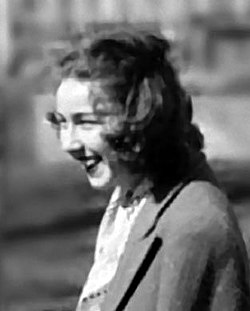Flannery O'Connor Quote
It's always wrong of course to say that you can't do this or you can't do that in fiction. You can do anything you can get away with, but nobody has ever gotten away with much.
Flannery O'Connor
It's always wrong of course to say that you can't do this or you can't do that in fiction. You can do anything you can get away with, but nobody has ever gotten away with much.
Related Quotes
If you call yourself an "authoress" on your Facebook profile, you suck at life. You are stupid and your children are ugly. It doesn't matter if you're just trying to be cute and original. You're not....
Oliver Markus
Tags:
annoying, annoying people, author, authoress, authors, discrimination, facebook, feminism, feminist, fifty shades
About Flannery O'Connor
Mary Flannery O'Connor (March 25, 1925 – August 3, 1964) was an American novelist, short story writer, and essayist. She wrote two novels and 31 short stories, as well as a number of reviews and commentaries.
O'Connor was a Southern writer who often wrote in a sardonic Southern Gothic style. She relied heavily on regional settings and grotesque characters, often in violent situations. In her writing, an unsentimental acceptance or rejection of the limitations, imperfections or differences of these characters (whether attributed to disability, race, crime, religion or sanity) typically underpins the drama.
O'Connor writing often reflects her Catholic faith, and frequently examines questions of morality and ethics. Her posthumously compiled Complete Stories won the 1972 U.S. National Book Award for Fiction and has been the subject of enduring praise.
O'Connor was a Southern writer who often wrote in a sardonic Southern Gothic style. She relied heavily on regional settings and grotesque characters, often in violent situations. In her writing, an unsentimental acceptance or rejection of the limitations, imperfections or differences of these characters (whether attributed to disability, race, crime, religion or sanity) typically underpins the drama.
O'Connor writing often reflects her Catholic faith, and frequently examines questions of morality and ethics. Her posthumously compiled Complete Stories won the 1972 U.S. National Book Award for Fiction and has been the subject of enduring praise.
